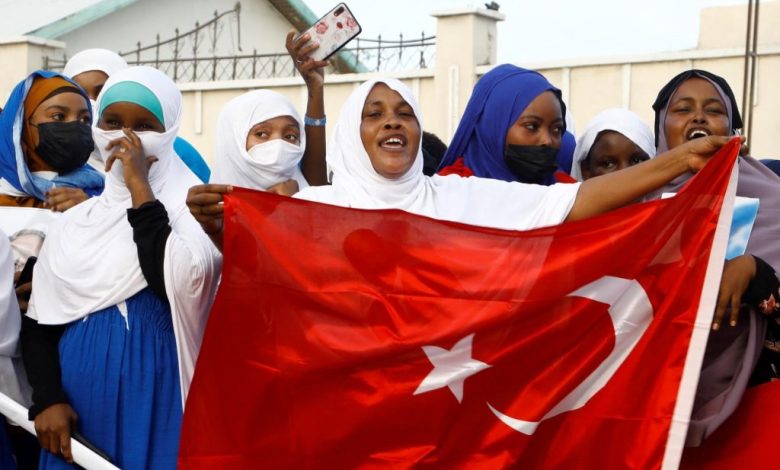Turkey’s Approach to Africa, Lessons for NATO (1-2)

Agencies – Sudan Events
With anti-interventionist sentiment becoming clearer in Mali and recent political turmoil in Niger, Francophone African countries in the Sahel seem to be stripping themselves of their French colonial legacies.
Once a vital player, France now has a footprint on the continent that is rapidly fading away, with few prospects for its return. This void creates an opportunity for the West’s adversaries—particularly China, Russia, and Iran—who are asserting an increasingly active stance in Africa.
France is leaving behind a power vacuum; Turkey’s strategy in Africa offers lessons for NATO on how to fill it.
Ankara’s foreign policy in Africa rests on a careful balance of soft and hard power. On one hand, Turkey’s cultural and political engagement with Africa has been a prominent element in Ankara’s foreign policy since the late 1990s. As Elif Çomoğlu Ülgen, general director of Eastern and Southern Africa at the Turkish Ministry of Foreign Affairs, explained in a recent panel discussion, the political-cultural opening to the continent gained momentum with the proliferation of Turkish embassies across Africa and the expansion of Turkish Airlines’ flight network, connecting Ankara to many African capital cities.
Turkey’s strategic opening to Africa, and Turkey-Africa relations overall, gained attention in 2005 with Ankara’s “Year of Africa” agenda. According to the Turkish Ministry of Foreign Affairs, the initiative helped pave the way for enhanced political and economic ties, including trade cooperation agreements, with African countries. That year, the Turkish Cooperation and Coordination Agency opened its first office in Africa; now it has more than twenty offices across the continent, implementing culture and development projects. Over the last few decades, Turkey has signed free trade agreements with five African nations: Morocco, Tunisia, Mauritius, Sudan, and Egypt. From 1980 to 2017, the trade volume between Turkey and several African countries grew dramatically: For example, Turkey-Algeria trade tripled, while Turkey-Egypt trade increased by five times. The improvement in relations was also accompanied by the expansion of efforts to promote the Turkish language and culture on the continent.
Today, thousands of African students study in Turkish universities or among the Turkish Cypriot community with the help of Turkish scholarships. Additionally, Turkey’s Maarif schools provide Turkish-language education to around twenty thousand students across twenty-four African countries. Under the ruling Justice and Development Party, Turkish-African relations improved further, with Turkish President Recep Tayyip Erdoğan saying that the Turkish people and African populations had built “heart-to-heart” connections. Such heart-to-heart connections were evident in state visits, with Erdoğan’s 2011 visit to Mogadishu amid a large-scale famine and drought that affected more than twelve million people across the Horn of Africa.
In addition to using soft power, Turkey has deployed hard power—in the form of its burgeoning defense diplomacy and military-capacity building—to connect with African countries. The positive momentum in Turkey-Africa relations has also led to closer security-military cooperation, specifically in counterterrorism operations.



